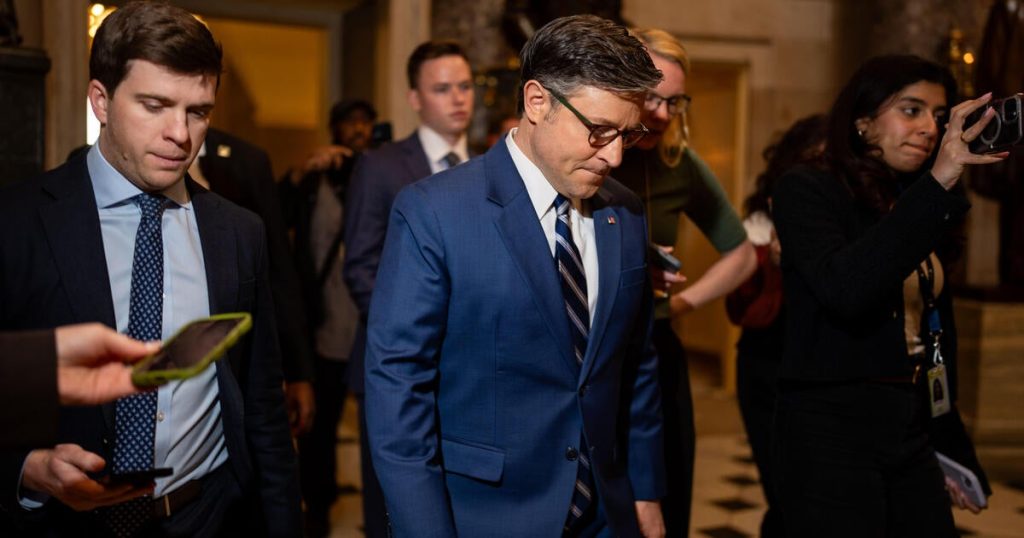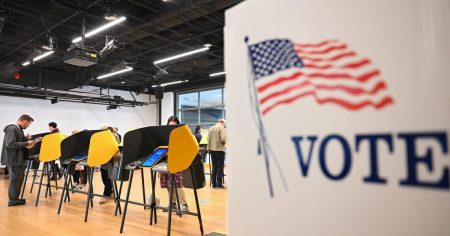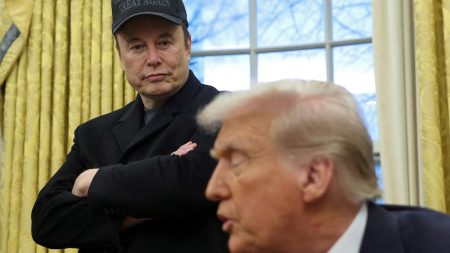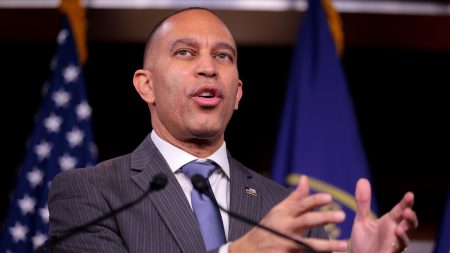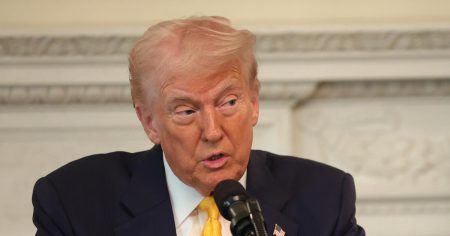House Budget Showdown: A High-Stakes Vote on Spending and Taxes
The U.S. House of Representatives is on the brink of a pivotal vote on a controversial budget proposal championed by President Trump, which promises substantial spending cuts and tax reductions. Speaker Mike Johnson is leading the charge, but thepath forward remains fraught with uncertainty as Republican unity hangs in the balance.
A Razor-Thin Majority and Rebel Republicans
Speaker Mike Johnson faces significant challenges in rallying his party behind the budget plan. With a slim 218-215 majority, Johnson can only afford to lose one Republican vote. Key figures like Rep. Victoria Spartz and Rep. Tom Massie have expressed strong opposition, citing concerns over ballooning debt. Spartz warns of a staggering $60 trillion in debt accumulation, while Massie argues that the budget would exacerbate the deficit. Even Elon Musk weighed in, agreeing with Massie’s concerns on social media, signaling broader unease beyond political circles.
The Budget Proposal: Cuts and Controversy
The proposed budget outlines $4.5 trillion in tax cuts and $1.5 trillion in spending reductions, alongside a $4 trillion increase in the debt ceiling. If spending cuts fall short of $2 trillion, tax cuts will be curtailed, a concession to conservatives. Medicaid is a prime target for cuts, worrying Republicans in competitive districts. Rep. Nicole Malliotakis, initially concerned about Medicaid reductions, received assurances from Johnson that cuts would only affect those not meeting work requirements or non-citizens.
Senate’s Alternative Plan and Democratic Pushback
Meanwhile, the Senate has introduced its own budget, positioning it as a backup plan. The Senate proposal splits the reconciliation process into two bills, prioritizing immediate funding for border security and defense, with tax reforms to follow. Senate Republicans aim for permanent tax cuts, contrasting with the House’s temporary approach. House Democrats, led by Minority Leader Hakeem Jeffries, are fiercely opposed, framing the plan as detrimental to working-class families. Jeffries has called for maximum attendance to oppose what he terms a "budget scheme."
A Tense Political Landscape
As the vote looms, uncertainty prevails. Johnson remains optimistic but acknowledges the high stakes, urging prayers for success. The Republican holdouts highlight intra-party divisions, while Democratic opposition underscores the plan’s unpopularity across the aisle. The Senate’s alternative plan offers a fallback, yet the immediate focus is on the House’s ability to pass its proposal, with the vote expected this week.
Conclusion: A Crucial Moment for Fiscal Policy
In summary, the House’s budget vote represents a critical juncture in U.S. fiscal policy, with significant implications for taxes, spending, and the national debt. Speaker Johnson’s ability to unify his party will determine the outcome, as opposition from within and outside his caucus intensifies. The political maneuvering reflects broader debates on economic priorities and governance, setting the stage for a monumental decision.





